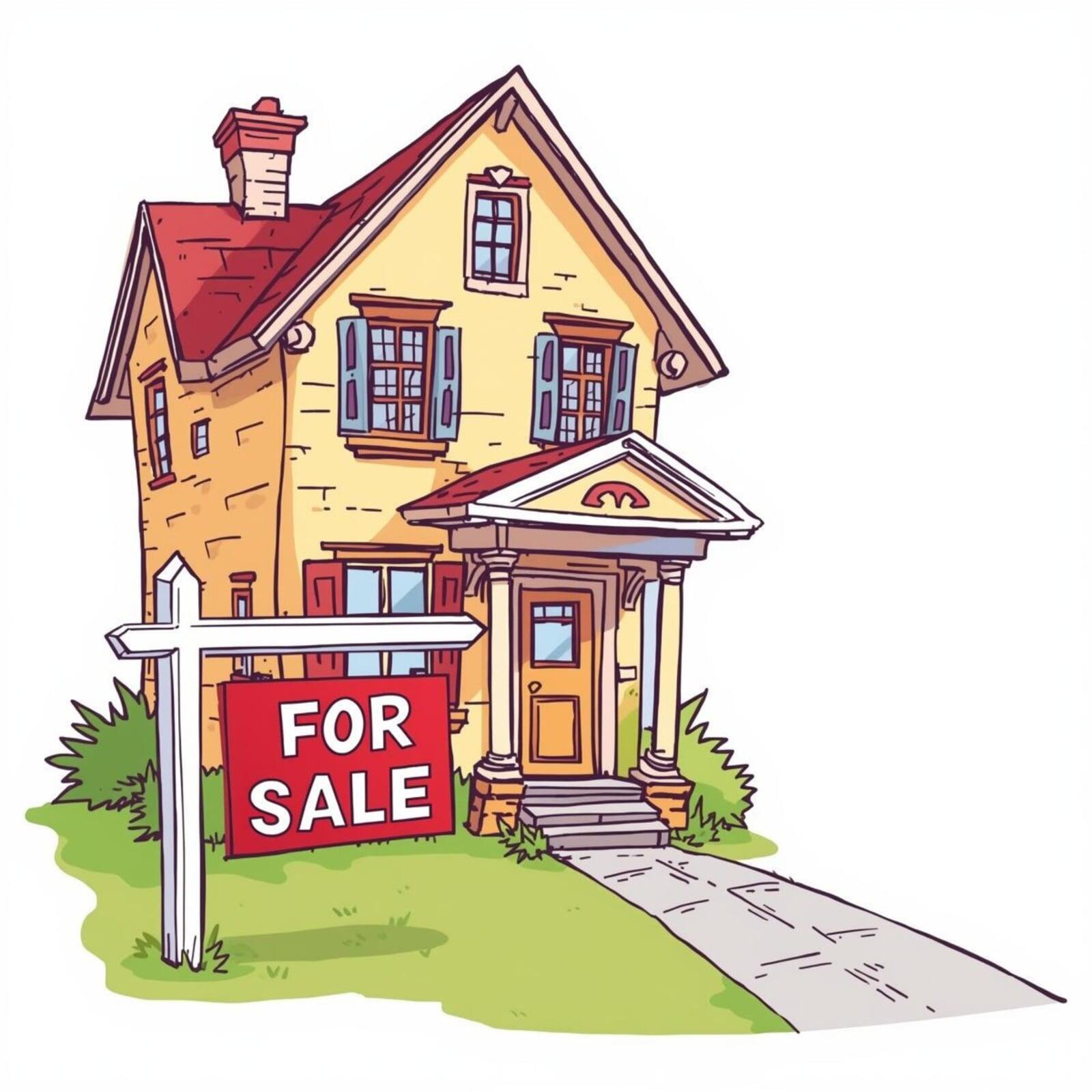It can be hard to sell an old house. The plumbing might be old, the paint might be faded, and the repairs might never end. But here's the good news: homeowners all over the U.S. sell older homes every day, and many of them don't spend thousands on renovations. The key is to know your options and pick the best way to sell.
We'll go over the following in this guide:
How to quickly sell an old house
The fastest ways to make a deal
Who pays the most cash for homes
If you can sell without making repairs
When a house isn't worth fixing up
The parts of a house that cost the most to fix
Let's get started.

How to Quickly Sell an Old House
You might think that buyers won't be interested in your house if it has old floors, peeling paint, or a roof that needs work. If you market it right, there are buyers for every property.
Here are some tried-and-true ways to sell an old house quickly:
Sell As-Is to a Cash Buyer
Companies that buy houses for cash specialize in buying old or damaged homes directly. They don't need repairs, appraisals, or long inspections. It can take as little as 7 to 14 days for a deal to close.
Set a competitive price
Deals attract buyers. If your house is older, you may get more than one offer if you set a fair price (and maybe a little lower). The key is to find the right balance between speed and profit..Emphasize the Possible
Instead of pointing out problems, talk about what buyers can do with the property. For instance, "Great for investors or anyone who wants to fix up a house and rent it out."
Target Investors and Flippers
People who invest in real estate actively look for old homes that they can fix up and sell again. If you market your home to them through listing descriptions or platforms that focus on investors, it will sell faster.
How can you sell your house the fastest?
Selling to a cash buyer is almost always the quickest choice. This is why:
No delays in getting a mortgage approved. Traditional buyers often need loans, which can take a long time or not happen at all.
No need for repairs. People who pay cash for homes buy them as they are.
Fast closings. A lot of people can close a deal in less than two weeks.
If you need to move quickly—maybe you're moving, dealing with an inheritance, or trying to avoid foreclosure—cash buyers are the best way to go.
👉 Learn more about timelines at Zillow’s Selling Guide
Who Pays the Most For Houses in Cash?
Not every cash buyer is the same. The main kinds are:
Investors in Real Estate in the Area
They usually offer prices that are fair but a little lower because they plan to fix up the house and sell it again.Companies that buy homes with cash across the country
These companies buy in many states and may offer competitive prices, but their fees and closing costs may be different.People Who Flip Houses
Flippers usually offer less because they have to think about the cost of repairs and their profit margin.
👉 Tip: To find out who pays the most, compare offers from at least two or three cash buyers. If your house is in an area with a lot of demand, some companies might surprise you with
higher bids.
👉 Compare strategies at Investopedia’s Guide to Selling Your Home for Cash.
Can I Sell My House Without Fixing It Up?
Yes, you can do that. In fact, a lot of homeowners choose this path because repairs can be hard and expensive.
As-Is Sale: This means you tell the buyer what condition the house is in right now, but you don't agree to fix anything. The buyer agrees to buy the property as it is.
Money Buyers: They want old houses and usually plan to do the work themselves.
Listings that are good for investors: If you market your home as a "fixer-upper," you'll get buyers who want to work on it.
What do you have to give up? You might get a little less than what the market says your house is worth. But you don't have to worry about repairs, which saves you time, money, and
stress.
👉 Check out Bankrate’s guide on selling as-is for more details.
When is it not worth it to fix a house?
Some old homes are better off being sold as-is than being fixed up. If you think about it, you might want to skip repairs if:
Repairs cost more than 20% to 30% of what the house is worth. If your house is worth $150,000 and needs $50,000 in repairs, it might be better to sell it than to fix it.
The base is very broken. Foundation problems are often deal-breakers for regular buyers, and fixing them can cost a lot of money.
You need to sell quickly. If time is more important to you than saving money, it won't be worth it to fix things.
The value of homes in the area is low. You won't get your money back on renovations if the houses nearby don't sell for a lot of money.
What is the most costly part of a house to fix?
Problems that cost a lot of money are often hidden in old houses. Many homeowners (and buyers) are scared of these big repairs:
Repairs to the foundation ($10,000 to $40,000 or more)
Cracks, sinking, or changes in the structure can all lead to big money problems.Replacing the roof ($8,000 to $20,000)
A roof that isn't working right can cause leaks, mold, and more damage.Plumbing repairs that cost between $5,000 and $15,000
Old pipes, especially those made of lead or galvanized steel, usually need to be replaced completely.Upgrades to the electrical system ($4,000–$12,000)
Not only is old wiring a pain, but it can also start a fire.Replacing the HVAC system costs between $6,000 and $12,000.
Heating and cooling systems break down, especially in homes that are older.
A lot of buyers turn away when they see these problems, unless they are investors looking for projects. That's why people who pay cash are often the best choice for homes that need
a lot of work.
👉 For national averages, check HomeAdvisor’s Cost Guide.
How to Sell an Old House Quickly: Steps You Can Take
Here's a simple list of things to do if you're ready to move on:
Choose how you want to sell
Cash buyer (quickest)
Realtor (bigger market, but slower)
FSBO (For Sale by Owner—saves money on commissions, but takes more work)
Get Important Papers Together
To speed up closing, you should have the deed, tax records, and mortgage information ready.Pick up and clean up
A clean space looks better, even if it doesn't need repairs.Get More Than One Offer
Look at both cash offers and regular listings to see which one is better.Be Honest
Tell people about any problems you know about right away. It builds trust and keeps things from going wrong during negotiations.
Questions That People Ask a Lot (FAQ)
1. How can I sell my old house the fastest?
Selling to a cash home buyer is the quickest way to go. They don't go through banks, inspections, or repairs, and they usually close in 7 to 14 days.
2. Do people who pay cash get a fair price?
Yes, but you should expect a little less than what the market says. They take into account the cost of repairs and the profit from selling. To get the best deal, look at offers from both
local and national buyers.
3. Is it possible to sell my house without making any repairs?
Of course. You can sell your home as-is, which means you don't have to fix anything. This is the best way to sell to investors or companies that buy homes for cash.
4. Should I fix things before I sell?
It depends. Small repairs, like painting or landscaping, might make a property more appealing. But if the house needs a lot of work, like a new roof or foundation, it might be better to
sell it as-is.
5. What are the repairs that cost the most?
Foundation: $10,000–$40,000+
Roof: $8,000–$20,000
Plumbing: $5,000–$15,000
Electrical: $4,000–$12,000
HVAC: $6,000–$12,000
6. How can I tell if my house isn't worth fixing?
If the cost of repairs is more than 20–30% of the home's total value or if property values in the area are low, it might be better to sell the house without making any repairs.
7. Who usually buys homes that are old?
People who buy old homes include:
People who flip houses
Companies that buy homes for cash
People who want to buy fixer-uppers on their own
8. Do I need a real estate agent to sell my old house?
Not always. Realtors can help you reach a lot of people, but if you want to sell quickly, selling directly to a cash buyer is faster and doesn't cost you any commissions.
Final Thoughts
It doesn't have to be hard to sell an old house. There are buyers out there for your home, even if it needs a new roof, has cracks in the foundation, or just looks old.
Working with a cash buyer who takes the home as-is and closes in a few days is usually the fastest way. For people who want the most money, it might be worth it to make some
repairs and list with an agent, but it takes longer.
In the end, the "best" choice depends on your circumstances. Do you want to make the most money or go as fast as possible? After you answer that, it will be clear what to do next.

